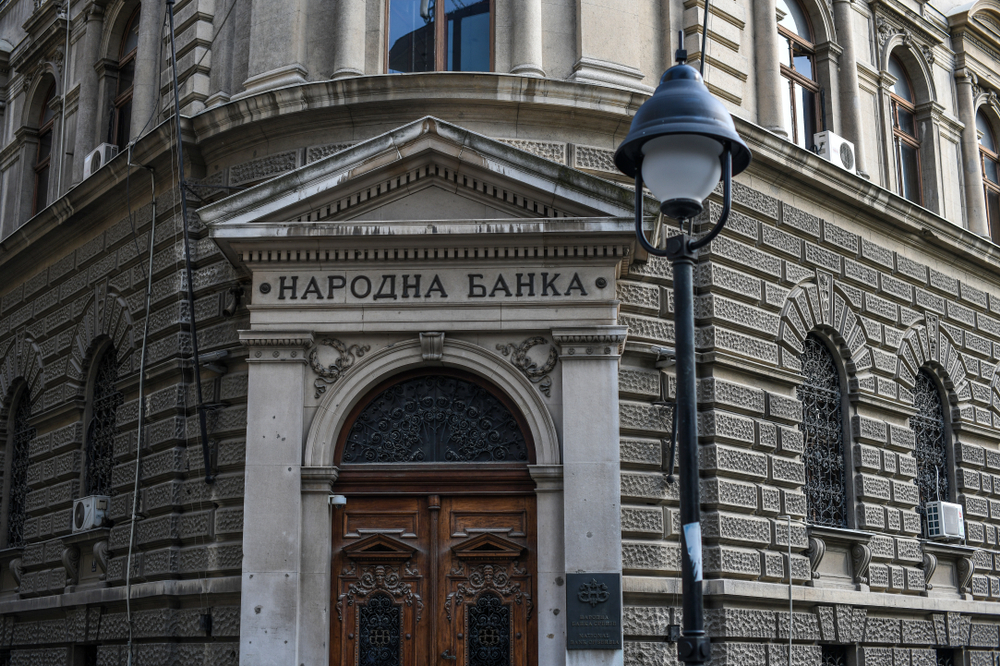BSE Leading by Example on Sustainability Reporting

Balázs Bozsik
The Budapest Stock Exchange (BSE) aims to promote “environmentally-friendly” finance through improving the sustainability reporting and environmental, social, and governance (ESG) data sharing of listed companies. “As the number of sustainable products increases on the stock exchange, we want to develop green markets,” bourse advisor Balázs Bozsik tells the Budapest Business Journal.
The BSE wants to improve awareness of ESG factors of both issuers and institutional investors in Hungary’s capital market, BSE ESG expert Bozsik says. One way to do this is through international cooperation. The BSE joined the United Nations Sustainable Stock Exchanges (SSE) initiative in 2019.
“This is an organization of exchanges, where members share their expertise and best practices with each other,” Bozsik explains.
The initiative is a UN Partnership Program with more than 80 stock exchanges around the world. The SSE provides a global platform for bourses, investors, issuers, regulators, policymakers, and relevant international organizations to improve performance on ESG issues and encourage sustainable investment.
The BSE also works closely with the Federation of European Securities Exchanges (FESE), a Brussels-based lobby group, in its Sustainable Finance Task Force.
In February 2021, the BSE published an ESG Reporting Guide for Hungarian issuers (existing and potential) that shows how to start making sustainability reports and provide ESG data, Bozsik says.
Boosting Transparency
“Our task is to boost transparency for investors by urging issuers to publish relevant ESG data rather than trying to push them to operate in an environmentally friendly manner. We want to make investment decisions about ESG-related factors easier.” In preparing the guide, the BSE checked best practices from other exchanges and worked with outside experts.
On the issuer side, the BSE sees strong interest in ESG reporting. “Both issuers and advisors, including big auditing companies and specialized agencies, attend the EGS workshops and conferences we organize for education purposes,” says Bozsik.
“We assessed Hungary’s ESG disclosure practices and found that there are some pioneers, along with issuers who are yet to improve their disclosure of sustainability data,” Bozsik notes. However, most Hungarian issuers don’t disclose any sustainability data.
In 2020, MOL qualified for the fifth consecutive year for inclusion in the Dow Jones Sustainability World Index (DJSI) in the Upstream & Integrated Oil & Gas category. MOL uses Global Reporting Initiative (GRI) standards as the main framework for its sustainability reporting, besides other standards. In this way, the group can increase its reach among international investors.
The three other Hungarian blue chips, Magyar Telekom, Richter, and OTP Bank, receive ratings from major ESG rating agencies, such as Arabesque, ISS ESG, MSCI, RobecoSAM, and Sustainalytics.
“We have asked the issuers that lag behind to make a plan on how to introduce ESG reporting first,” Bozsik says. The problem is that the initial costs of this transformation are high, while companies and investors will see its positive impact only in the long run.
Green Bonds, Green Market
There are already a couple of green bonds in Hungary’s corporate bond market. Hungarian real estate developer Futureal, for example, issued a 10-year green bond with a nominal value of HUF 55 billion in March under the Bond Funding for Growth Scheme of the National Bank of Hungary (MNB).
The MNB, the stock exchange owner, says it seeks to develop a domestic market for green mortgage bonds. The bank has also started promoting green mortgage lending through a Green Mortgage Bond Purchase Program.
The Government Debt Management Agency (ÁKK) has already issued both forint- and euro-denominated green bonds. Its first forint green bond auction in April drew strong demand.
Besides green mortgage bonds, social bonds will be available sooner or later, according to Bozsik. “As the number of green financial products is increasing, we will be able to create green markets and green indexes,” he adds.
The BSE is striving to make ESG principles a part of its strategy and to provide sustainable data as a role model for listed companies, he adds.
For more on ESG and sustainability, look out for our Green Business Special Report in the next issue of the Budapest Business Journal.
Richter Statement on ESG
“With investor expectations about ESG growing, Richter will publish its Sustainability Report annually starting this year. The report, released every two years since 2005, examines Richter’s corporate governance and its initiatives to reach social and environmental sustainability transparently. We aim to provide a comprehensive picture of all the areas that investors and various ESG rating agencies look at concerning Richter and pharmaceutical producers in general. When it comes to our external communication, we also pay attention to presenting the relevant information in an easily accessible way. As a responsible business, Richter places a great deal of emphasis on sustainability aspects that affect every element of the company’s vertically integrated business, be it pharmaceutical manufacturing, research, and development, or trade and marketing.”
OTP Bank ESG Statement
“In November 2020, OTP Bank launched its ESG Program and established an ESG committee. This regularly reports on the status of the ESG Program to the management committee and has started to develop OTP Bank’s ESG strategy. We have to meet expectations both as a bank and as a legal entity. Here, the bank needs to think about strategic processes, such as how ESG considerations are reflected in our risk management or remuneration policies. With these, the bank also meets the expectations of the various ESG rating agencies. Based on their rating, our customers and partners see how well the bank complies with ESG rules. In addition, in the area of services (this means thousands of products in customer portfolios), we also had to assess and show the sustainability risks of these products.
“The bank had until March 10 to complete the publication of the regulations on the remuneration, organization and product side, risk management, transparency of adverse effects, and related procedures. OTP is already at the forefront of financing green infrastructure, housing loans, electric cars, renewable energy production and making its activities more environmentally friendly in terms of material and energy savings.”
Magyar Telekom Corporate Communications Director István Kutas
“Magyar Telekom has developed its approach to sustainability along the three ESG pillars, environmental, social, economic, and includes values such as climate protection, a healthy environment, sustainable society, diversity, social solidarity, digital catch-up, sustainable products, and services, as well as fair trade and transparency. Magyar Telekom has published a sustainability report annually since 2004 that adheres to strict international standards, ensuring comparability and analysis. The reports follow the guidelines of the GRI. Our most recent report for 2020 was prepared using GRI Standard’s “Comprehensive” application level. As well as improved TCFD (Task Force on Climate-Related Financial Disclosures) compliance, SASB (Sustainability Accounting Standards Board) standard requirements have also been added to the current report. It is based on the international standard ISAE 3000, an independent third-party PwC tested and certified compliance with GRI criteria.
“Like previous years, the 2020 report summarizes the progress made following UN Global Compact principles. In 2009, Magyar Telekom joined the initiative and its 10 principles in the areas of human rights, working conditions, environmental protection, and anti-corruption. Responsible investors already own 45% of Magyar Telekom’s free shares. In the 2020 and 2021 ratings, leading agencies such as the ISS, MSCI, and FTSE4Good, rank the group among the top companies in its industry. Magyar Telekom has been confirmed as a member of the FTSE4Good index family by FTSE Russell. Moreover, as the only Hungarian firm, Magyar Telekom was among the top 7% companies based on the Carbon Disclosure Project Supplier Engagement Rating rating.
This article was first published in the Budapest Business Journal print issue of September 10, 2021.
SUPPORT THE BUDAPEST BUSINESS JOURNAL
Producing journalism that is worthy of the name is a costly business. For 27 years, the publishers, editors and reporters of the Budapest Business Journal have striven to bring you business news that works, information that you can trust, that is factual, accurate and presented without fear or favor.
Newspaper organizations across the globe have struggled to find a business model that allows them to continue to excel, without compromising their ability to perform. Most recently, some have experimented with the idea of involving their most important stakeholders, their readers.
We would like to offer that same opportunity to our readers. We would like to invite you to help us deliver the quality business journalism you require. Hit our Support the BBJ button and you can choose the how much and how often you send us your contributions.










